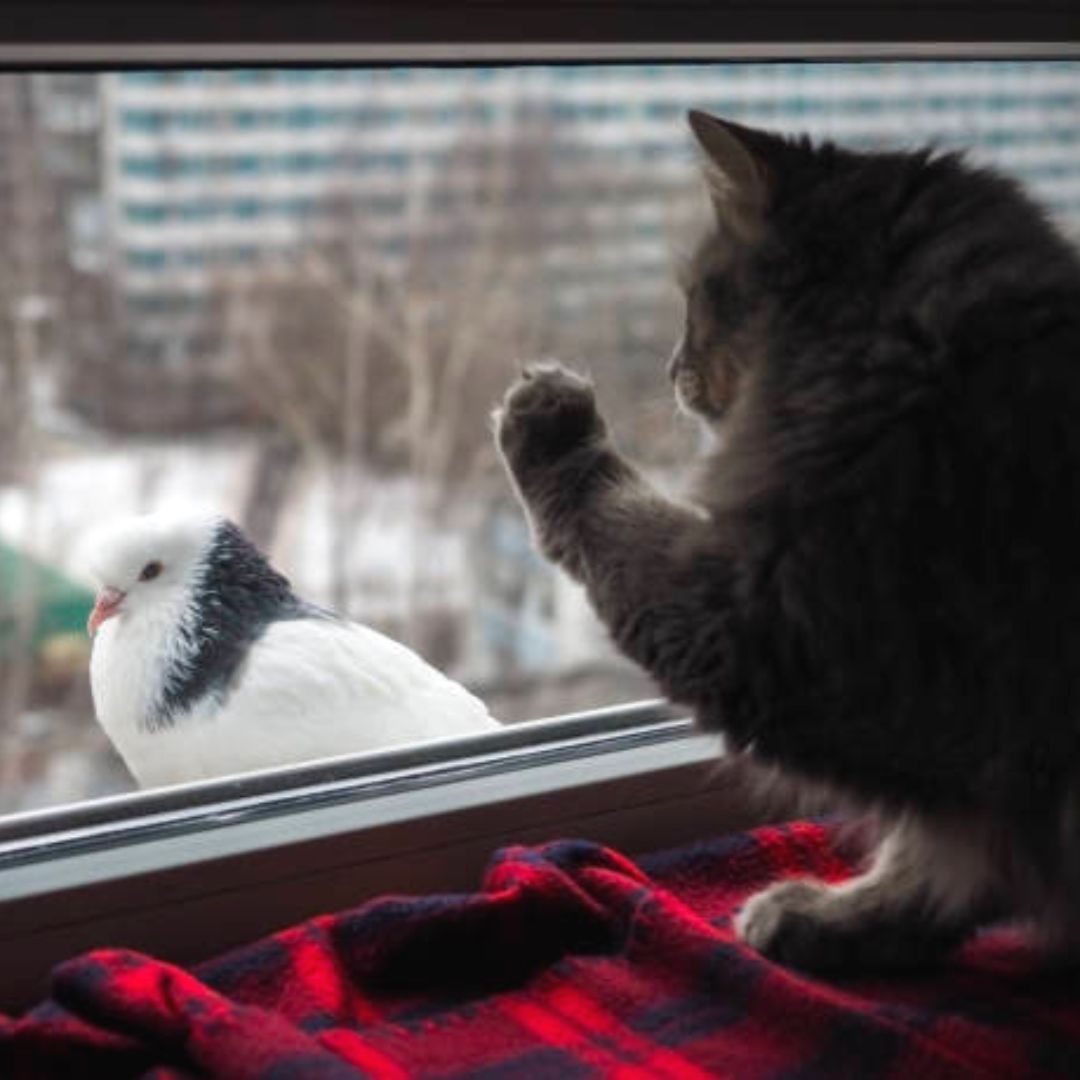
The Enigma of Feline Fascination: Why Cats Love Bird-Watching
Share
Cats, those mysterious and independent creatures that share our homes, have long captivated us with their peculiar behaviors. Among their many intriguing habits, one that stands out is their fascination with bird-watching. Whether they are perched by the window, crouched in the backyard, or simply staring intently at the skies, cats seem to derive immense pleasure from observing birds. In this blog, we delve into the reasons behind this innate feline behavior, exploring the biological, instinctual, and psychological aspects that make bird-watching a favorite pastime for our feline friends.
- Predatory Instincts:
At the core of a cat's fascination with birds lies its predatory instinct. Domestic cats are descendants of wild felines that survived by hunting for their food. Even though today's house cats are well-fed with commercial cat food, the predatory drive remains deeply ingrained in their DNA. Bird-watching allows them to engage this instinct without the need for actual hunting. The sight of birds flitting about triggers their natural hunting behaviors, such as stalking, pouncing, and even vocalizing, mimicking the strategies they would use in the wild.
- Visual Stimulation:
Cats are highly visual creatures with keen eyesight that surpasses our own in certain aspects. Their eyes are adapted to detect motion and perceive subtle changes in light, making them exceptional hunters. Birds, with their rapid movements and vibrant colors, provide the perfect visual stimulation for cats. The fluttering wings, the graceful dives, and the swift aerial acrobatics of birds captivate a cat's attention and keep them engaged for extended periods.
- Entertainment and Enrichment:
Bird-watching serves as a form of entertainment and mental enrichment for cats. In the confines of a domestic setting, where they may not have the opportunity to explore the outdoors, observing birds becomes a stimulating and engaging activity. This mental stimulation is crucial for their overall well-being, preventing boredom and providing an outlet for their energy. Many cat owners set up bird feeders or birdbaths near windows to create a natural spectacle for their feline companions, transforming bird-watching into an enriching and shared experience.
- Hunting Simulation:
Cats are natural hunters, and bird-watching allows them to simulate the hunting experience without posing a threat to the local bird population. The act of observing birds from a distance, coupled with the associated behaviors like tracking and stalking, satisfies their predatory instincts. It's a safe and non-disruptive way for cats to express their hunting prowess, and it often results in a sense of accomplishment and satisfaction for the feline observer.
- Connection to Nature:
Even though domesticated, cats maintain a deep connection to their wild ancestors. Bird-watching provides a glimpse into the natural world, allowing cats to connect with the sights and sounds of the outdoors. The chirping of birds, the rustling of leaves, and the play of sunlight all contribute to an immersive experience for cats, fostering a connection to the environment that satisfies their instinctual need for a link to the wild.
- Exercise for the Mind and Body:
Bird-watching is not a passive activity for cats; it engages their minds and bodies. The intense focus, calculated movements, and occasional bursts of energy as they try to 'catch' a bird through the window provide a mental and physical workout. This is especially beneficial for indoor cats, as it helps prevent obesity and related health issues. In essence, bird-watching becomes a form of feline exercise, promoting agility and coordination.
- Sensory Stimulation:
Cats rely heavily on their senses, and bird-watching offers a multi-sensory experience. The visual spectacle is complemented by the chirping sounds of birds, the subtle rustling of leaves, and even the distant calls of other wildlife. This sensory stimulation enriches the cat's environment, making bird-watching an immersive and enjoyable sensory experience.
Conclusion:
In unraveling the mystery of why cats love bird-watching, we find a tapestry woven from their predatory instincts, visual acuity, need for mental stimulation, and a profound connection to nature. As responsible cat owners, we can enhance their environment by providing opportunities for safe bird-watching experiences, be it through strategically placed bird feeders, interactive toys, or even designated outdoor spaces. Understanding and embracing this behavior not only contributes to a cat's well-being but also strengthens the unique bond we share with these enigmatic feline companions. So, the next time you catch your cat perched by the window, eyes fixed on the skies, remember that it's not just bird-watching—it's a glimpse into the wild heart that beats within our domesticated feline friends.
